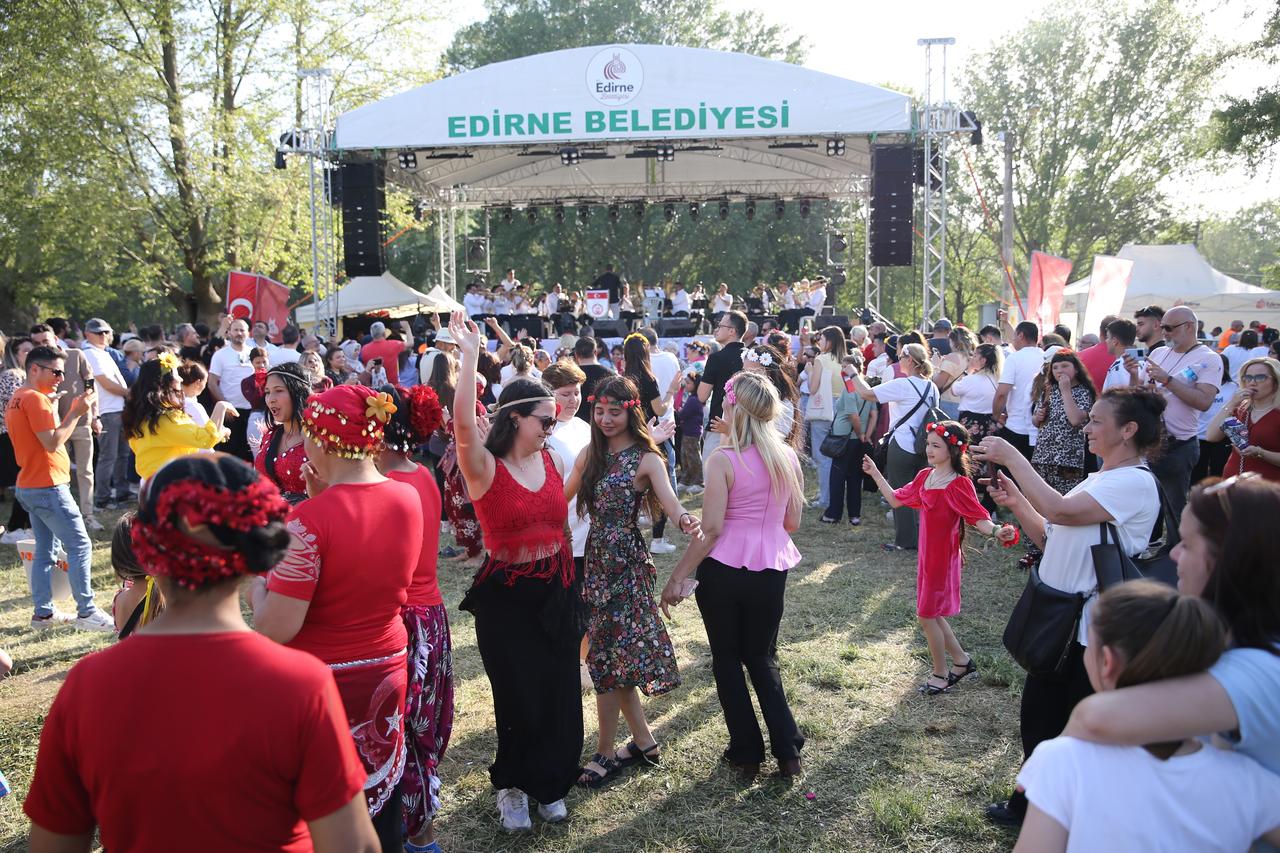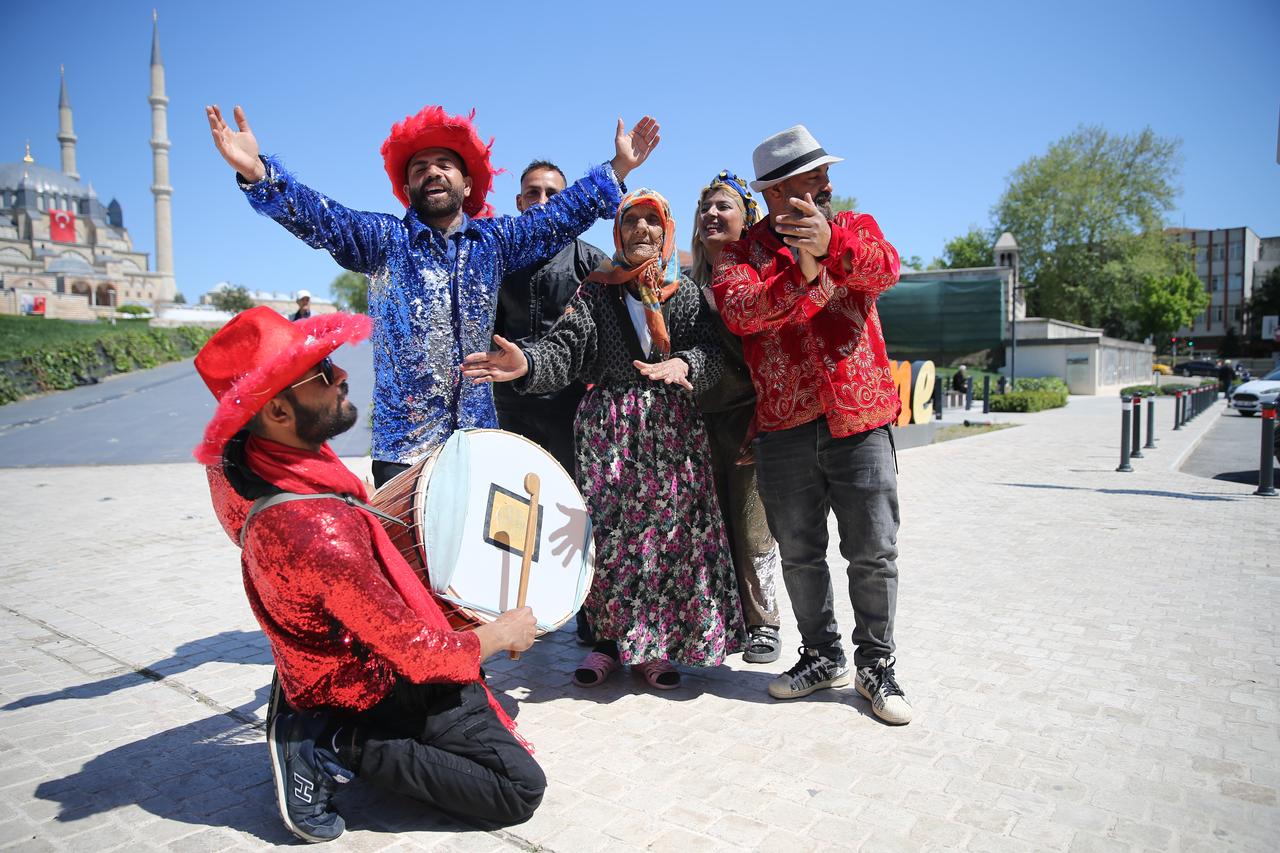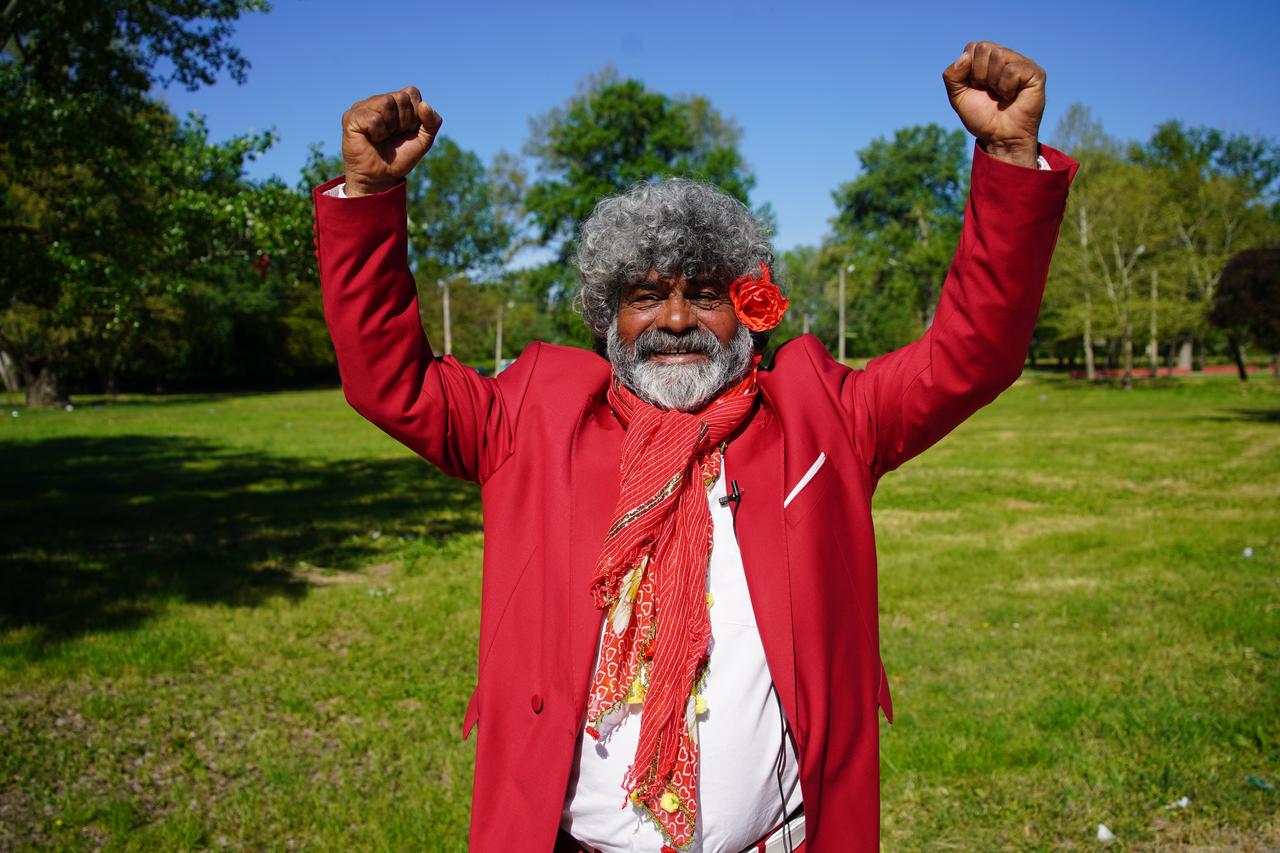
Each year in early May, the northwestern Turkish city of Edirne becomes the stage for one of the country’s most vivid cultural celebrations: the Kakava Festival. Rooted in the traditions of the Roma community, Kakava is a celebration of spring, rebirth and identity, blending ancient mythology with vibrant modern expressions of music, dance and ritual.
The two-day festival, held on May 5 and 6, is closely linked with Hidirellez, a widespread springtime celebration in Türkiye and parts of the Balkans. However, Kakava carries a distinct meaning for the Roma people, who observe it as a spiritual and cultural renewal. At the heart of the celebration is the legendary figure Baba Fingo, a mythical guardian who is believed to emerge from the river annually to bestow good fortune and blessings.

As the festival begins, thousands gather along the Tunca River to take part in time honored rituals. Bonfires are lit across the city on the evening of May 5, symbolizing the cleansing of past misfortunes and the arrival of a new season. People jump over the flames in a symbolic gesture of purification, and music fills the air as Romani musicians play traditional instruments such as the clarinet, darbuka and violin.
The riverbank becomes a sacred space in the early hours of May 6. Participants wade into the waters, release floral wreaths, and send written wishes downstream, hoping for renewal and protection in the year ahead. The river serves as both a physical and spiritual connection to the past, reinforcing the bond between tradition and nature.
Beyond the mystical elements, Kakava is also a vibrant cultural showcase. Colorful dresses, rhythmic dances and open air feast create a carnival-like atmosphere. Performances, public concerts and local crafts add layers of artistry to the celebration. Children are dressed in bright costumes, families gather in city squares and the entire city joins in the festivities, regardless of ethnic background.

While the festival is open to all, its core meaning remains deeply connected to the Roma community. For a group that has historically faced marginalization, Kakava is more than entertainment; it is a statement of identity and a celebration of survival. It offers a rare moment when Roma voices, music and customs are not just visible but embraced by the broader public.
In recent decades, Kakava has gained wider recognition beyond the Roma community, thanks to efforts by local authorities, cultural organizations, and media coverage. Edirne’s municipality now plays a key role in organizing and promoting the festival, framing it as part of the city’s diverse cultural heritage and as a regional attraction that draws both domestic and international tourists.
For cultural historians and anthropologists, Kakava provides valuable insight into the hybrid cultural practices of Türkiye’s Roma communities, who have preserved unique expressions of identity despite centuries of social marginalization. The continued celebration of Kakava demonstrates how folklore, collective memory, and shared rituals play a vital role in maintaining minority cultures within pluralistic societies.
As the fires of Kakava burn each May, they do more than light up the night they illuminate a living tradition that links the past with the present, strengthens community bonds and invites all to witness the richness of Romani cultural life in Türkiye.